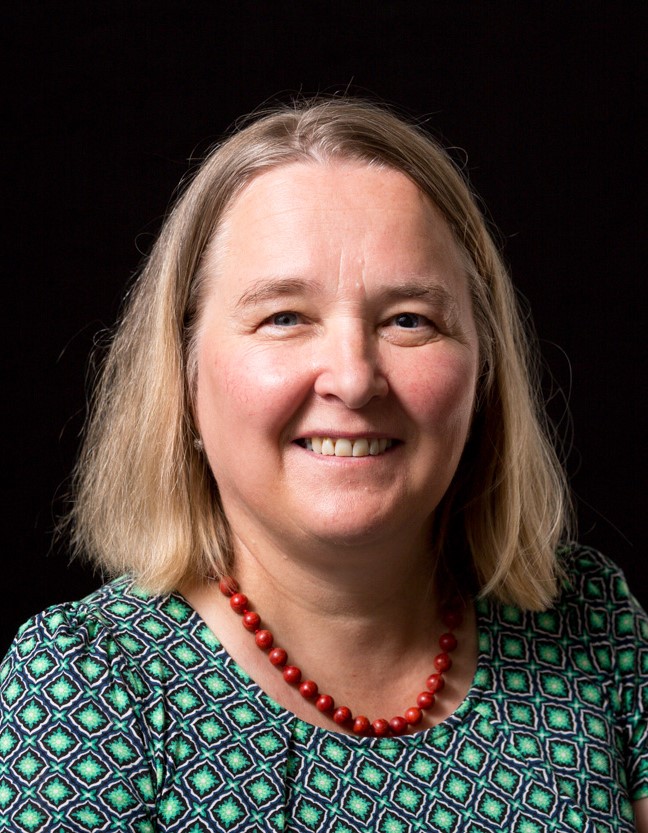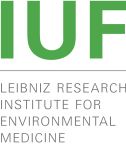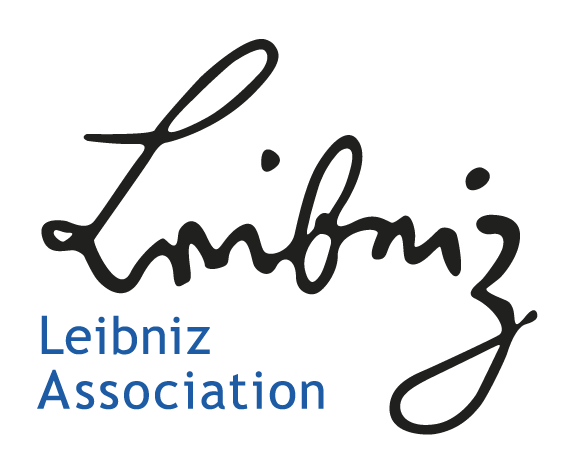The research group’s work focuses on epidemiological aspects of environmentally-induced aging of the lung, the brain, and the skin as well as early life exposure to environmental stressors. The main focus is the collection and analysis of data on the effect of long and short-term exposures to air pollution, green spaces, and climate factors on chronic diseases as well as the complex interplay between these exposures.
The research group was able to show that chronic exposure to air pollution, in particular PM10 and NO2 as well as living close to major roads, increases the risk of developing chronic obstructive pulmonary disease (COPD) and mild cognitive impairment in elderly women. Furthermore, skin aging was enhanced.
Another focus of the working group is the maintenance of the long-standing, IUF-genuine cohort Study on the influence of Air pollution on Lung function, Inflammation, and Aging (The SALIA study). The SALIA study was initiated in the early 1980s by the North Rhine-Westphalian State Government to investigate the effect of air pollution exposure on different health outcomes in women. One of the main findings from this study was that long-term exposure to particulate matter and high traffic is associated with an increase in airway and cardiovascular diseases. In addition, the working group could show that high exposure to traffic-related air pollution increases the risk of cardio-pulmonary mortality in the same cohort. This was done in cooperation with the Institute of Epidemiology at the Helmholtz Center (HMGU) in Munich. In recent years, the SALIA Family study was initiated to investigate the question of heredity and genetics of chronic diseases. The SALIA Family study wants to find out how environmental factors and living habits can influence the health of people from the Ruhr area and southern Münsterland over several generations.
Worldwide the working group Schikowski was the first one to show that particle exposure from traffic-related sources was associated with diabetes and skin aging (pigment spots and wrinkles).
Another main focus is the investigation of risk factors including genetic factors (genome-wide association studies, polygenic risk scores, gene-environment interaction analysis) for the development of allergies and lung diseases. Thereby influences of environment-related noxes on the immune system play an important role. To address these questions, we participate in large epidemiological cohort studies: NAKO and the birth cohorts GINIplus and LISA.

Head of working group:
Tamara Schikowski
National projects
The IUF genuine SALIA study and SALIA Family
The current investigation of the SALIA and SALIA Family study focuses on the effects of environmental pollution, especially particulate matter, and climatic factors, on health in the elderly and across generations. In addition, the study aims to understand chronic diseases with their complex and long history of development over several decades. A special focus in the current follow-up is the spread of the novel coronavirus (SARS-CoV-2) and the associated preventive measures for containment. The project COVGENAIR is funded by the German Research Foundation (DFG) and focuses on the influence of chronic diseases, genetics, and environmental factors on infection with the Sars-CoV-2 virus. The project is conducted in collaboration with the HMGU in Munich and uses the long-term data from the cohort studies (SALIA, GINIplus/LISA and KORA).
GINIplus and LISA: Birth cohort studies on the influence of air pollution, lifestyle and genetics on the development of atopies
Allergies such as eczema/neurodermatitis, hay fever, and asthma are increasing worldwide. In western, industrialized countries they are among the most frequent chronic illnesses. Although numerous national and international studies found associations with environmental and genetic determinants, knowledge about the development and manifestation of allergic diseases is still fairly limited. Today early childhood influences or influences even in pregnancy in combination with genetic factors are considered most important. Birth cohort studies, therefore, are central to the detection of pathogenetic mechanisms. Together with different groups throughout Germany, the Schikowski lab participates in the two birth cohort studies GINIplus and LISA. GINIplus (German Infant Study on the influence of Nutrition Intervention PLUS environmental and genetic influences on allergy development) started in 1996 and investigates allergy prevention by hydrolyzed formula milk in comparison with conventional cow milk-based formula and additionally the influence of environmental and genetic factors on the development of allergies. The LISA study (Influence of Life-style related factors on the development of the Immune System and Allergies in East and West Germany) started in 1997 with the aim to observe the development and natural course of atopic diseases (asthma, hay fever, neurodermatitis) and investigating various possible causes of these diseases in East and West Germany. Meanwhile data up to the 20th year of the children are available. Eczema is the earliest manifestation of allergic diseases (most children get eczema aged between 2 and 3) and thus is especially interesting for the investigation of early-life influences on allergy development. Since 2022, the 25 years examination of young adults is being conducted in which the working group Schikowski participates.
Participating external cooperation partners: Helmholtz Centre Munich, German Research Centre for Environmental Health, Institute of Epidemiology (M. Standl (PI)); Research Institute, Children´s Department, Marien-Hospital, Wesel (A. v. Berg , D. Berdel); Evangelisches Krankenhaus Düsseldorf, Children's Hospital, Düsseldorf (M. Gappa); Department of Pediatrics, Technical University of Munich (C.P. Bauer); Division of Paediatric Gastroenterology and Hepatology, Ludwig Maximilians University of Munich, Dr. von Hauner Children’s Hospital (S. Koletzko); The projects were initially funded by the Federal Ministry for the Environment, Nature Conservation, Building, and Nuclear Safety.
NAKO: The German National Cohort
The German National Cohort (GNC or NAKO Gesundheitsstudie) is so far the largest German health study. It aims at providing a comprehensive picture of the state of health of the population living in Germany and novel strategies for risk assessment, early recognition, and prevention of widespread diseases. 200,000 study participants (men and women aged between 20 and 69) were recruited nationwide. Together with the German Diabetes Center (DDZ), the IUF conducts a study center that examined 9,146 participants of the study population in the baseline investigation. The first postal follow-up of the NAKO participants’ progress started in 2017, and was conducted by IUF in Düsseldorf, the second follow-up examination started in 2019 and will be completed by the beginning of 2024. The second postal follow-up, and an additional COVID questionnaire, are carried out by the IUF. The German National Cohort is conducted in cooperation with other members of the research consortium German National Cohort and is funded by the German Federal Ministry for Education and Research, the Helmholtz Association, and the participating federal states. The study shall serve as a research platform for population-based health research.
Within the German National Cohort, the main tasks at the IUF are currently:
- Member of the Use and Access Committee of the NAKO and a member of the GNC Management Board (Board of Directors) (T. Schikowski)
- Member of the expert groups: Environment and cardio-vascular health (T. Schikowski)
- Scientific and administrative co-supervision of the study center in Düsseldorf (T. Schikowski)
- Responsibility for the postal follow-up questionnaires and the endpoint validation (E. Link)
- Provision of a study nurse for the study center at the DDZ, who conduct the examination (M. Frohnhoff)
Research training group (RTG) 2624: Biostatistical methods for high-dimensional data in toxicology
The research training group (RTG) 2624 is funded by the DFG (German Research Foundation) and the time period of the first phase is 04/2021-09/2025. Participating institutions together with the IUF are the Heinrich Heine University Düsseldorf, IfADo – Leibniz Research Centre for Working Environment and Human Factors and the TU Dortmund. The aim of the RTG is the development and application of biostatistical methods for the analysis of high-dimensional data for modeling and risk assessment in toxicology. Doctoral researchers acquire knowledge in toxicology and the ability to develop and apply statistical methods for questions in pharmacological and environmental toxicology. In toxicology, innovative statistical methods are required to optimally exploit the ever-growing, heterogeneous, molecular flood of data for adequate modeling and risk prediction. In addition to conventional one-dimensional dose-response models, more complex models need to be developed. High-dimensional omics data are used in modeling both as an interaction factor for toxicological exposure and as a target.
International Projects
Novel health care strategies for melanoma in children, adolescents and young adults (MELCAYA)
In childhood, adolescence and young adults (CAYA), melanoma is under-studied and non-existing tailored clinical guidelines and standardized approaches lead to a very low diagnostic accuracy. The MELCAYA project aims to understand risk factors and determinants of melanoma to improve the prevention, diagnosis and prognosis of melanomas in CAYAs. The Schikowski lab contributes together with the Krutmann lab to the identification of risk factors, exposomics and genetic susceptibility of melanoma in CAYAs. The funding is provided within the HORIZON-MISS-2021-Cancer-02-03 funding scheme (2022-2028).
Kanazawa University (Shika cohort study, Japan)
In a joint project with the Kanazawa University in Japan we are investigating and comparing gene-environment interactions in elderly German and Japanese women (Shika cohort, n=847) with a special focus on air pollution and lung health. Cooperation partners are the Departments of Hygiene and Public Health, Bioinformatics and Genomics and the graduate school of ‘Advanced preventive medical sciences’, Kanazawa University, Japan (Prof. Hiroyuki Nakamura and Dr. Akinori Hara).
Taizhou project (China)
The project „Air pollution exposure, its interaction with genes and the role of systemic inflammation on skin-related outcomes in an elderly Chinese population”, is a collaboration with the Max Planck-CAS Paul Gerson Unna Research Group on Dermatogenomics in Shanghai, China (cooperation partner: Dr. Sijia Wang). The study investigates the long-term effects of air pollution exposure on skin-related outcomes in an elderly Chinese population. The focus is on gene-air pollution interactions to identify possible susceptible groups and additionally focus on systemic inflammation and its role in skin-related outcomes after long-term air pollution exposure. This project is in close collaboration with the working group Krutmann. The external collaboration partners are Prof. Li Jin, Prof. Theresa Wang and Prof. Haidong Kan (Fudan University, Shanghai, China). The project is supported by the joint IUF-PICB research project as well as industrial funding.
CASAI cohort (India)
The project “Climate, air pollution and skin aging in Indian women (CASAI)”, is a collaboration with the Centre for Environmental Science and Engineering, Indian Institute of Technology (IIT) Bombay, Mumbai, India (cooperation partner: Dr. Harish Phuleria). The study investigates the long-term effects of climate and air pollution exposure on extrinsic skin aging signs in Indian women above the age of 20 years. The study focuses on the interactive effect of climate and air pollution together which have been identified as important environmental factors to induce premature skin aging signs. India, with diverse climatic conditions, extreme temperatures and high air pollution exposure, provides an opportunity to discover extrinsic skin aging signs in a population which is ethnically and socioeconomically different from Western and other Asian countries. The cohort was established between the years 2018-2020 in three major metropolitan cities of India: Delhi, Mumbai, and Bangalore, and examined 1500 participants in the baseline investigation. This project is in close collaboration with the working group Krutmann and is supported by funding from Amway.
The working group participates in a number of large consortia:
SpiroMeta
The SpiroMeta consortium consists of 17 cohorts to facilitate large-scale GWAS of lung function: ALSPAC, B58C-T1DGC, B58C-WTCCC, EPIC, the EUROSPAN studies (Korcula, NSPHS, ORCADES and Vis), FTC (incorporating the FinnTwin16 and Finnish Twin Study on Aging), GINIplus, LISA, KORA, LISANFBC1966, SHIP, SALIA, and TwinsUK.
EAGLE
The ‘Early Genetics and Lifecourse Epidemiology (EAGLE)’ consortium is a consortium of pregnancy and birth cohorts that aims to collaborate to investigate the genetic basis of phenotypes in antenatal and early life and childhood. EAGLE covers a broad range of pathways and phenotypes.
CADSET
CADSET (Chronic Airway DiSeases Early sTratification) a Clinical Research Collaboration launched in 2018 is a pan-European network. The strategic objective of CADSET was to create a consortium in which investigators with access to population cohorts, birth cohorts and cohorts of patients with asthma and/or COPD can work together to understand better how lung function trajectories influence the clinical presentation of chronic airway diseases, asthma, and COPD in particular. CADSET now includes >80 members, a population description of 45 different studies, comprising a total of 290,000 individuals (year: 2020).
EXPANSE
The EU-funded EXPANSE project is part of the European Human Exposome Network. By studying the impact of the Urban Exposome on the major contributors to Europe’s burden of disease: Cardio-Metabolic and Pulmonary Disease, EXPANSE will address one of the most pertinent questions for urban planners, policymakers, and European citizens: “How to maximize one’s health in a modern urban environment?”. The urban exposome is a complex mix of social and environmental factors in the urban environment that collectively affect health.
IUF internal:
WG Haarmann-Stemmann
WG Krutmann
WG von Mikecz
WG Schins
Core Unit GEMD
National:
Prof. Holger Schwender, Faculty of Mathematics and Natural Sciences, Heinrich Heine Universität Düsseldorf
Priv.-Doz. Dr. Christian Herder, German Diabetes Center (DDZ), Leibniz Center for Diabetes Research, Düsseldorf
Prof. Katja Ickstadt and Prof. Jörg Rahnenführer, Faculty of Statistics, TU Dortmund
Prof. Markus Löffler, Institute for Medical Informatics, Statistics and Epidemiology, University Leipzig
Prof. Andreas Macke and Dr. Markus Hermann, Leibniz Institute for Tropospheric Research (TROPOS), Leipzig
Prof. Annette Peter and Dr. Alexandra Schneider, Helmholtz Zentrum, München
GINI consortium (Dr. Marie Standl, HMGU München; Prof. Sybille Koletzko, LMU München; Prof. Carl-Peter Bauer, TU München; Prof. Dietrich Berdel, Wesel; Dr. Andrea von Berg, Wesel)
International:
Prof. Michael Abramson, Monash University, Melbourne, Australia
Prof. Harish Phuleria, Centre for Environmental Science & Engineering, Indian Institute of Technology Bombay (IIT), Mumbai, India
Prof. Haidong Kan, Fudan University, Shanghai, China
The working group Schikowski provides statistical support to the experimental working groups.
Senior Scientist
Postdocs
PhD students
Master student
Student assistance
Technical assistance
Guest scientists



